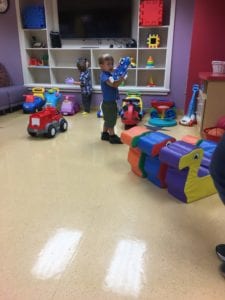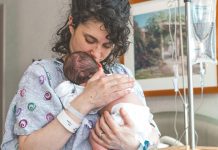By September of this year, we will have experienced four pediatric surgical procedures in four years.
Thankfully our two major surgeries are behind us, and now we are waiting for two minor procedures that won’t require overnight stays. I also want to acknowledge all of the moms whose children have had multiple major surgeries and/or a long term medical issue. You are rockstars! For us, four surgeries is four too many, but I know that my children are healthy and I am so thankful for that.
Any surgery is stressful.
While I do feel less stressed about my oldest having an outpatient procedure than when my youngest had two cranial surgeries, it’s still not something I am excited about. Honestly, one of the hardest parts is letting go of your child while someone wheels them to the OR knowing we can’t go back there to comfort them.
Here are some things we have learned through our experiences with pediatric surgery:
Ask all the questions.
This might seem obvious, but I am so surprised that once surgery is deemed necessary it is then quickly scheduled. There are no follow up appointments for questions or concerns, or even a detailed explanation of what will happen. To the medical team, this is their everyday life, to the family and the child, it’s a big deal.
Some good questions to ask in the office:
- Is this procedure necessary?
- Are there other options?
- What happens if we wait?
- What is the recovery time like?
- Who do I talk to if I have concerns about, anesthesia, post-op pain, post-op care, insurance/billing, etc.
- Is there hospital support for the child, like the Child Life Specialists at Our Lady of the Lake?
Don’t be afraid to call later and ask questions or seek a second opinion.
Our youngest son had a soft spot from his first surgery that didn’t close after helmet therapy, so after months of us watching and waiting, our neurosurgeon recommended putting a permanent metal plate over the soft spot. We agreed; we were worried that as an active two year old, he may hit his soft spot too hard one day and cause serious damage. What we didn’t ask was, “What are our options?” We found out eight months later that there was other material we could’ve used to cover his soft spot, including his own bone. We didn’t ask, so we didn’t know.
Our family rule: We don’t eat breakfast in front of the child having surgery.
For solidarity, we wait until they are wheeled back to eat (or we get up before they do and eat). Usually I’m too nervous to eat ahead of time, and then finally hungry enough to eat once we’re settled in the waiting room.
Kids don’t wake up alert and happy.

What we’ve found (and heard from others), is that children will be super groggy when they first wake up, often in pain, disoriented, and cranky. Once they take pain medication, a nap, or both, they are more alert. After our youngest took a fifteen minute nap, he woke up and asked for food and his daddy. He didn’t want me around, only gold fish and Dad. This kid went on to eat pizza in his daddy’s lap around two hours after waking up. Which leads to the next point…
Kids are resilient! They can do hard things, and they can play while doing it.

Again, after my youngest had his last cranial surgery, the first night was the hardest. He got one round of strong pain meds which kept him awake, and the next day he was playing … with an IV port in each foot! He barely took Motrin and Tylenol after that, and we were begging to go home that next day. He was playing at the park less than two weeks later. Our biggest concern was keeping his stitches clean.

Surgery is so stressful. Seek support, even if it’s just texting a friend while you’re in the waiting room. Kids are amazing and resilient, and they still need all of our hugs and kisses. So, when you’re feeling stressed pre and post-op, give them a big hug and say something positive. They’ve got this, and so do you!


















